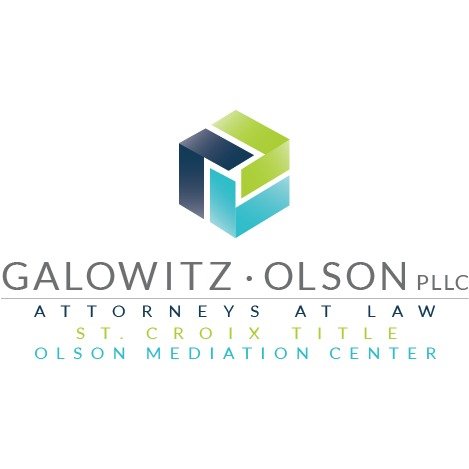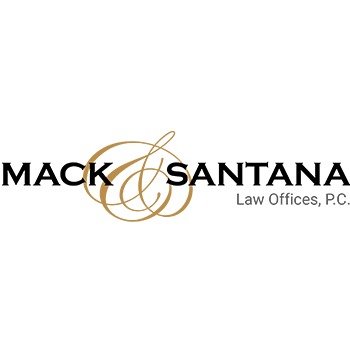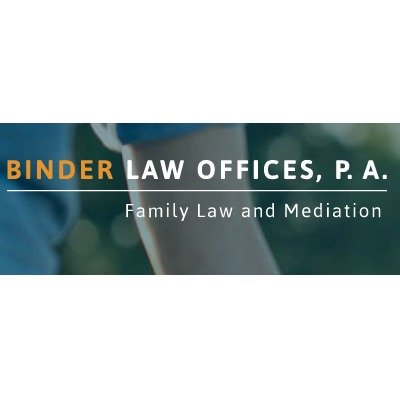Best Collaborative Law Lawyers in Minnesota
Share your needs with us, get contacted by law firms.
Free. Takes 2 min.
Free Guide to Hiring a Family Lawyer
Or refine your search by selecting a city:
List of the best lawyers in Minnesota, United States
About Collaborative Law in Minnesota, United States
Collaborative Law, also known as Collaborative Practice, is an alternative dispute resolution method increasingly popular throughout Minnesota, particularly in family law cases such as divorce, child custody, and parenting plans. The Collaborative Law process is designed to resolve disputes respectfully and efficiently without going to court. Instead of adversarial litigation, each party hires a specially trained collaborative attorney and, together with other professionals like financial specialists or child experts, the parties work toward a mutually agreeable solution. The process is voluntary, confidential, and focused on open communication and problem-solving rather than confrontation.
Why You May Need a Lawyer
Collaborative Law is not just for divorcing couples; it can also apply to issues like custody, support modifications, and even disputes in other areas of law. Here are common situations where you may need a collaborative lawyer:
- You are contemplating divorce and want to minimize emotional and financial stress
- You wish to resolve child custody or parenting time issues cooperatively
- You and your spouse or partner want to negotiate property division amicably
- You need help modifying an existing court order or agreement
- You prefer to avoid court proceedings and keep your dispute private
- You want to maintain communication and a positive relationship with the other party, especially when children are involved
- You are looking for a more holistic and interest-based solution to your dispute
A collaborative lawyer helps explain your rights, ensures the process is fair, manages expectations, and documents your agreements properly so they are legally binding in Minnesota.
Local Laws Overview
Collaborative Law is formally recognized in Minnesota law. The state adopted provisions based primarily on the Uniform Collaborative Law Act (UCLA), specifically codified in Minnesota Statutes, Chapter 518. Aspects of Minnesota’s laws that are particularly relevant include:
- Both parties must sign a written Participation Agreement outlining the collaborative process
- All attorneys involved must withdraw from representation if the process fails and the case proceeds to litigation
- The process is voluntary - either party can end participation at any time before an agreement is reached
- All communications and documents exchanged during the collaborative process are confidential and cannot be used in court, subject to some exceptions for required disclosures or threats to safety
- The agreements reached can be filed with the court and become enforceable court orders
- Minnesota encourages the use of trained professionals in addition to lawyers, to help address specific issues like financial complexity or children’s needs
These laws help ensure a level playing field, foster transparency, and give structure to out-of-court negotiations.
Frequently Asked Questions
What is the difference between Collaborative Law and traditional divorce proceedings?
Unlike traditional litigation, Collaborative Law avoids adversarial court hearings. The parties work together voluntarily and agree to resolve issues outside of court with specially trained collaborative attorneys. If either party opts for litigation, the collaborative attorneys must withdraw.
Is Collaborative Law only for divorce cases?
While Collaborative Law is most commonly used for divorce and family law, it can also be appropriate for other civil disputes, such as business or probate matters, as long as both parties agree to the process.
How long does the collaborative process usually take in Minnesota?
The process varies depending on complexity, but collaborative divorces in Minnesota often take less time than traditional cases, sometimes a few months instead of well over a year.
Can I use collaborative divorce if my spouse and I are not on speaking terms?
Effective communication is essential to the process. However, collaborative professionals are trained to help facilitate dialogue even in tense situations. It may not be suitable if communication is completely broken or there is a history of abuse.
Is collaborative law less expensive than going to court?
Generally, yes. Collaborative Law can be less expensive due to fewer court appearances and a focus on settlement, though costs depend on the complexity of your case and the professionals involved.
What happens if we cannot reach a settlement in the collaborative process?
If a settlement cannot be reached, both collaborative attorneys must withdraw, and the parties may pursue litigation with new attorneys. Any information shared during the collaborative process remains confidential.
Are the agreements reached in collaborative law legally binding?
Yes. Once an agreement is reached and filed with the court, it becomes a legally enforceable court order, just like in traditional proceedings.
What is included in the Participation Agreement?
The Participation Agreement outlines the rules of the collaborative process, such as voluntary participation, confidentiality, full disclosure obligations, and the requirement for attorney withdrawal if the process breaks down.
Can a collaborative law process work with complex financial situations?
Yes. Financial neutrals and other experts can be brought into the process to address complex assets, business valuations, debts, or tax implications, ensuring informed decisions.
Is collaborative law appropriate if there is a history of domestic abuse?
Collaborative Law is generally not recommended if there is a significant power imbalance or ongoing domestic abuse, as the safety and voluntary participation of all parties cannot be guaranteed. Other legal protections may be more appropriate in such cases.
Additional Resources
People seeking more information or assistance with Collaborative Law in Minnesota may find these resources helpful:
- Minnesota State Bar Association - Family Law Section
- Collaborative Law Institute of Minnesota
- Minnesota Judicial Branch - Self Help Center
- University of Minnesota Law School - Dispute Resolution Institute
- Local county conciliation and family court services
These organizations provide helpful information, referrals to certified collaborative professionals, and educational materials about Collaborative Law.
Next Steps
If you think Collaborative Law might be right for your situation in Minnesota, consider these steps:
- Research collaborative attorneys and professionals who are specially trained and licensed in Minnesota
- Schedule a consultation to discuss your circumstances and determine if the collaborative process fits your needs
- Prepare a list of questions and financial documents to discuss with your attorney or professional
- Talk to the other party about Collaborative Law to gauge their willingness to participate
- Once both parties agree, sign a Participation Agreement to begin the process
- Work with your collaborative team and professionals to develop solutions that work for everyone involved
- After an agreement is reached, your attorney can submit it to the court for approval and entry as a binding order
Collaborative Law offers a respectful and cooperative way to resolve disputes and can be an empowering choice for Minnesota residents seeking a better path forward. If you have questions or need legal advice, contacting a collaborative attorney is a smart first step.
Lawzana helps you find the best lawyers and law firms in Minnesota through a curated and pre-screened list of qualified legal professionals. Our platform offers rankings and detailed profiles of attorneys and law firms, allowing you to compare based on practice areas, including Collaborative Law, experience, and client feedback.
Each profile includes a description of the firm's areas of practice, client reviews, team members and partners, year of establishment, spoken languages, office locations, contact information, social media presence, and any published articles or resources. Most firms on our platform speak English and are experienced in both local and international legal matters.
Get a quote from top-rated law firms in Minnesota, United States — quickly, securely, and without unnecessary hassle.
Disclaimer:
The information provided on this page is for general informational purposes only and does not constitute legal advice. While we strive to ensure the accuracy and relevance of the content, legal information may change over time, and interpretations of the law can vary. You should always consult with a qualified legal professional for advice specific to your situation.
We disclaim all liability for actions taken or not taken based on the content of this page. If you believe any information is incorrect or outdated, please contact us, and we will review and update it where appropriate.
Browse collaborative law law firms by city in Minnesota
Refine your search by selecting a city.










